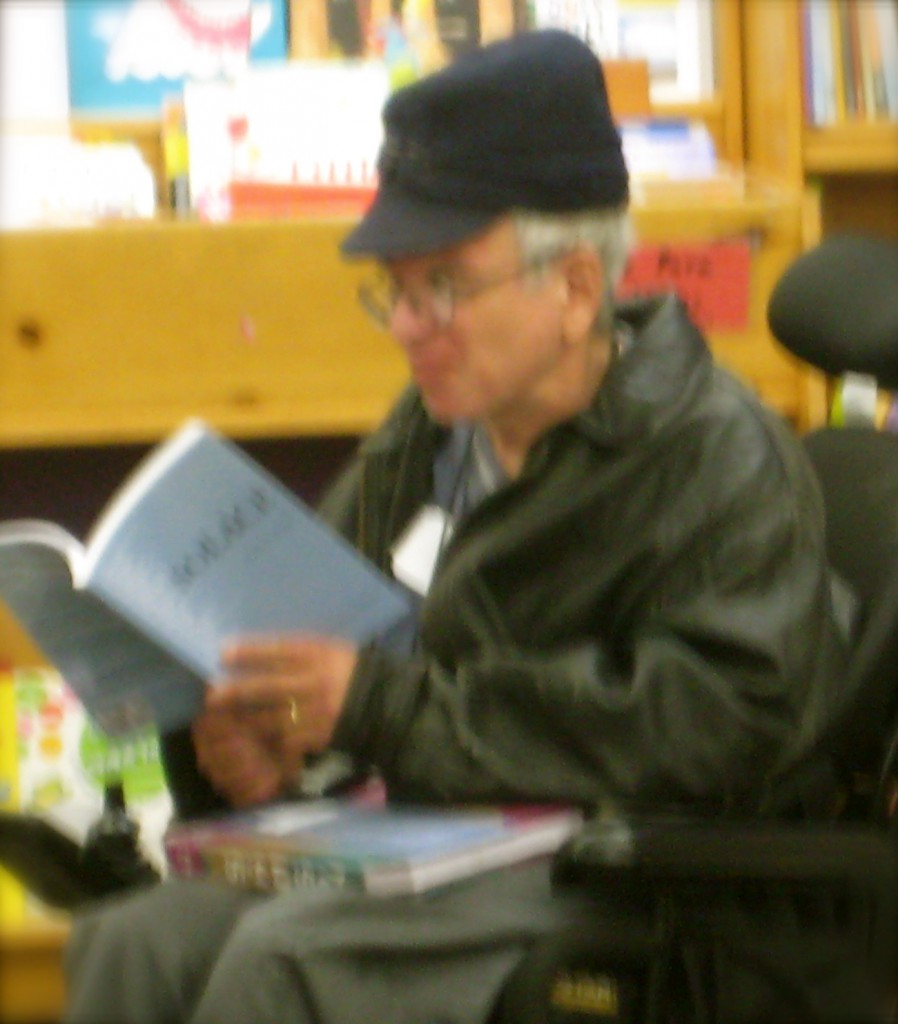 This past Sunday I went to the American Artworks Gallery in Forest Park to attend a reading event for After Hours magazine in which Ellen T. McKnight, friend to Solace in So Many Words, was a featured reader (along with Christopher Gallinari). The venue was cozy, and like most readings emceed by Al DeGenova, who along with Pat Hertel edits After Hours, it had a relaxed and mellow vibe.
This past Sunday I went to the American Artworks Gallery in Forest Park to attend a reading event for After Hours magazine in which Ellen T. McKnight, friend to Solace in So Many Words, was a featured reader (along with Christopher Gallinari). The venue was cozy, and like most readings emceed by Al DeGenova, who along with Pat Hertel edits After Hours, it had a relaxed and mellow vibe.
After Hours is a one of Chicago’s great little magazines. Published twice a year (January and June) for more than a decade, the magazine is top quality in terms of its contents and print production values, as each issue showcases photography and visual art as well as writing. Just the other day, After Hours and its publisher were given some well-deserved recognition when they were featured in Chicago Artists Resource.
On Sunday, a beautiful fall day, I bought the Summer 2011 issue of After Hours in which Barry Silesky (“The New Animal” and “Music Lesson”) is the featured writer. Six of his poems are published and there is a full-page bio and photo.
Barry’s poetry books include: The New Tenants (Eye of the Comet Press, 1991), One Thing that Can Save Us (Coffee House Press, 1994), This Disease (University of Tampa Press,) and Greatest Hits (Pudding House). He has also written two biographies: Ferlinghetti, The Artist in His Time (Warner Books) and John Gardner, Literary Outlaw (Algonquin Books).
When you read Barry’s bio, you might understand why I think of him as the definition of a working poet for he has been studying, writing, teaching, running workshops and editing Another Chicago Magazine for some 25 years. He’s dedicated to poetry. If you’d like to read more about Barry, Claire Kirch gave him a nice write-up in 2004 in Publisher’s Weekly
There is a quality of yearning in his work that speaks to me and is evident in his poems published in After Hours. For instance, “Working on The Roof,” which is from Barry’s first book, admonishes: “The thing is to pay attention.”
Since T. C. Boyle is a writer whose excellence is recognized by just about everybody, it is not such a remarkable coincidence that Barry’s poem “The Wanting Animal” published in After Hours, uses a line from T. C. Boyle as an epigram. But I think it is pretty cool that both the source of inspiration and the poet are in Solace in So Many Words, and similarly in his poem, “The New Animal,” in Solace in So Many Words, Barry also uses a line from T. C. Boyle as a jumping-off point. T. C. Boyle gets you thinking, no doubt. And so does Barry Silesky.
Tugging on my heart are the last lines:
“For once, maybe it does. Maybe
this is it, alive and various; music
calling your name, that you can’t
hear, and want, and want, and want.”

Leave a Reply